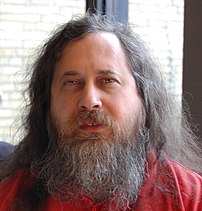Scientists warn that the North Pole could be free of ice in just five years' time instead of 60
- The Observer,
- Sunday August 10 2008
- Article history
Ice at the North Pole melted at an unprecedented rate last week, with leading scientists warning that the Arctic could be ice-free in summer by 2013.
Satellite images show that ice caps started to disintegrate dramatically several days ago as storms over Alaska's Beaufort Sea began sucking streams of warm air into the Arctic.
As a result, scientists say that the disappearance of sea ice at the North Pole could exceed last year's record loss. More than a million square kilometres melted over the summer of 2007 as global warming tightened its grip on the Arctic. But such destruction could now be matched, or even topped, this year.
'It is a neck-and-neck race between 2007 and this year over the issue of ice loss,' said Mark Serreze, of the US National Snow and Ice Data Centre in Boulder, Colorado. 'We thought Arctic ice cover might recover after last year's unprecedented melting - and indeed the picture didn't look too bad last month. Cover was significantly below normal, but at least it was up on last year.
'But the Beaufort Sea storms triggered steep ice losses and it now looks as if it will be a very close call indeed whether 2007 or 2008 is the worst year on record for ice cover over the Arctic. We will only find out when the cover reaches its minimum in mid-September.'
This startling loss of Arctic sea ice has major meteorological, environmental and ecological implications. The region acts like a giant refrigerator that has a strong effect on the northern hemisphere's meteorology. Without its cooling influence, weather patterns will be badly disrupted, including storms set to sweep over Britain.
At the same time, creatures such as polar bears and seals - which use sea ice for hunting and resting - face major threats. Similarly, coastlines will no longer be insulated by ice from wave damage and will suffer erosion, as is already happening in Alaska.
Other environmental changes are likely to follow. Without sea ice to bolster them, land ice - including glaciers - could topple into the ocean and raise global sea levels, threatening many low-lying areas, including Bangladesh and scores of Pacific islands. In addition, the disappearance of reflective ice over the Arctic means that solar radiation would no longer be bounced back into space, thus heating the planet even further.
On top of these issues, there are fears that water released by the melting caps will disrupt the Gulf Stream, while an ice-free Arctic in summer offers new opportunities for oil and gas drilling there - and for political disputes over territorial rights.
What really unsettles scientists, however, is their inability to forecast precisely what is happening in the Arctic, the part of the world most vulnerable to the effects of global warming. 'When we did the first climate change computer models, we thought the Arctic's summer ice cover would last until around 2070,' said Professor Peter Wadhams of Cambridge University. 'It is now clear we did not understand how thin the ice cap had already become - for Arctic ice cover has since been disappearing at ever increasing rates. Every few years we have to revise our estimates downwards. Now the most detailed computer models suggest the Arctic's summer ice is going to last for only a few more years - and given what we have seen happen last week, I think they are probably correct.'
The most important of these computer studies of ice cover was carried out a few months ago by Professor Wieslaw Maslowski of the Naval Postgraduate School in Monterey, California. Using US navy supercomputers, his team produced a forecast which indicated that by 2013 there will be no ice in the Arctic - other than a few outcrops on islands near Greenland and Canada - between mid-July and mid-September.
'It does not really matter whether 2007 or 2008 is the worst year on record for Arctic ice,' Maslowski said. 'The crucial point is that ice is clearly not building up enough over winter to restore cover and that when you combine current estimates of ice thickness with the extent of the ice cap, you get a very clear indication that the Arctic is going to be ice-free in summer in five years. And when that happens, there will be consequences.'
This point was backed by Serreze. 'The trouble is that sea ice is now disappearing from the Arctic faster than our ability to develop new computer models and to understand what is happening there. We always knew it would be the first region on Earth to feel the impact of climate change, but not at anything like this speed. What is happening now indicates that global warming is occurring far earlier than any of us expected.'
ph (643) 389 4065 cell 027 265 7219







